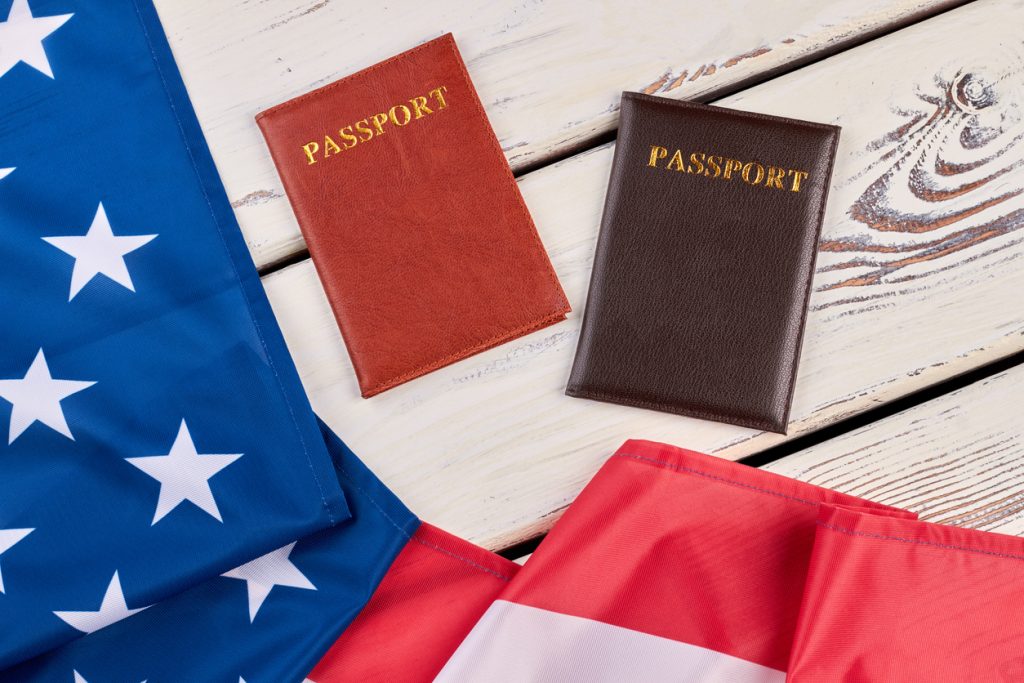If so, you may be interested in dual citizenship. This is also known as dual nationality and allows you to be recognized as a citizen of the United States and another country at the same time. It's a complex legal status but can provide some amazing advantages.
What Exactly Is Dual Citizenship?
Dual citizenship means you are a lawful citizen of two countries at once. You have legal rights in both the US and another nation. This means you must fulfil the duties of citizenship for both countries. Dual citizens owe allegiance to the US and their other country of citizenship.
The terms "dual citizenship" and "dual nationality" are often used interchangeably. However, there is a subtle difference. "Citizenship" generally refers to your status within a country, while "nationality" refers to your status internationally.
As a dual citizen, you'll be issued passports from both countries. You don't have to choose one nationality over the other. The US allows you to naturalize in a second country without risking your American citizenship.
Requirements For Obtaining Dual Citizenship
Becoming a dual citizen has some requirements you'll need to meet. Let's look at the eligibility requirements, application process, and timeline involved:
Eligibility Requirements
To qualify for dual citizenship, you must first meet the requirements to be a US citizen, either through:
- Birth in the US
- Being born abroad to a US citizen parent
- Going through the naturalization process after immigrating
You must also meet the citizenship requirements of the other country where you wish to hold citizenship. Some countries allow dual nationality, while others do not.
Timeline and Costs
It typically takes 6+ years to obtain dual citizenship, including:
- 1+ years to immigrate on a visa
- 3-5 years as a permanent resident
- 1-2 years for the US naturalization process
Costs vary, but plan on:
- $1,000-$5,000 for immigration application fees
- $725 for the N-400 citizenship application
- Potential fees to another country of around $100-$1,000+
The total timeline and costs make dual citizenship a long-term investment. But the benefits are well worth it for many.
Rights and Responsibilities Of Dual Citizens
It is estimated that 40% of Americans qualify for dual nationality and its benefits. Dual citizenship comes with unique rights as well as obligations. Here are some of the key rights you'll enjoy along with responsibilities to keep in mind:
Key Rights
- Travel freely between both countries with access to two passports. You can live, work, and study in either country without visas.
- Participate in government and elections by voting, running for office, and petitioning the government in both countries.
- Qualify for public benefits and assistance like healthcare coverage, pension, unemployment benefits, and education grants in both countries (if eligible).
- Pass down citizenship to children born in either country. Also able to get green cards more easily for family members.
Key Responsibilities
- Pay taxes in both countries on worldwide income. Some countries have tax treaties to prevent double taxation.
- Obey the laws of both countries. Legal violations in one country can impact status in the other.
- Renounce other citizenships if required by your country. Some require giving up all prior allegiances.
- Serve in the military and jury duty if mandated by either country.
Dual citizens must juggle the responsibilities of two different countries. But gaining the rights and conveniences is worthwhile for many people overall.
Which Countries Allow Dual Citizenship With The US?
Over 100 countries recognize dual citizenship with the US, each with its policies. Here are some of the most notable:
- Canada: Canadians can keep citizenship when naturalizing as US citizens.
- United Kingdom: Brits may retain UK citizenship when they are naturalized as US citizens.
- Mexico: Mexicans keep their nationality when becoming US citizens, but lose some political rights like voting in Mexico.
- Israel: Israelis can retain citizenship after US naturalization. Special exemptions from military service.
- Australia: Australians keep Australian citizenship when naturalizing as US citizens.
- Germany: Germans can have dual nationality with the US with few restrictions.
- France: French citizenship is retained after becoming a US citizen.
- Italy: Italians keep citizenship after US naturalization, but must declare dual citizenship to Italy.
The rules can vary greatly by country, so research thoroughly when applying for dual nationality. Consulting an immigration attorney is wise to ensure you maintain your status properly in both nations.
How To Obtain Dual Citizenship Step-By-Step
Having dual nationality could enhance travel for corporate executives and make movement much easier.
Through Naturalization
For those immigrating to the US, naturalization is the most common path. Here are the steps:
- Immigrate to the US on a visa permitting permanent residency.
- Get a green card and maintain residence for 3-5+ years.
- Apply for naturalization by filing Form N-400 and fulfilling requirements like passing civics tests.
- Attend a naturalization ceremony to take an oath of allegiance to the US.
- Apply for citizenship in a second country following their application process.
- Naturalization can take 6+ years but offers the most direct path to dual nationality.
Through Marriage
If you marry a US citizen, you can apply for expedited US citizenship after 3 years instead of the normal 5:
- Immigrate on a spousal visa.
- Apply for permanent residency.
- After 3 years of marriage to US citizens, apply for naturalization.
- Attend an oath ceremony and become a US citizen.
- Apply to a second country for citizenship.
Marriage to a US citizen speeds up the timeline but comes with relationship requirements. Consult an attorney about the fine print.
Through Birth or Descent
If you were born in the US, or born abroad to a US citizen parent, you may already qualify for dual citizenship through descent. For eligible individuals, this is the fastest and simplest route to dual nationality. Investment also offers a path to dual nationality for those who can afford it.
How Dual Citizenship Can Be Lost
While dual citizenship provides many benefits, it's possible to lose your status if you don't follow the rules properly. There is plenty of advice for business people getting divorced, but it won’t affect their resident status. But, there are some key ways your citizenship could be revoked including committing fraud or residing outside of the US.
- Serving in a foreign military - If the military is engaged in hostilities towards the US, you may forfeit American citizenship.
- Running for political office in another country - This can be grounds for revoking US citizenship. Each country has different rules.
- Committing fraud in your citizenship application - You may be deported and have your citizenship revoked if you provide false information.
- Residing outside the US - If a dual citizen spends too much time abroad, their US citizenship could potentially be questioned.
- Renouncing your citizenship - You can voluntarily relinquish your citizenship in either country by making a formal declaration.
For these reasons, holding dual citizenship has risks. Make sure you understand all the nuances fully. Consult an experienced immigration attorney if you have concerns.
Wrapping Up
While holding citizenship allows you to enjoy privileges from two nations it also entails responsibilities towards both countries. Carefully weigh all the pros and cons before making any decisions regarding your status, as a citizen.





















